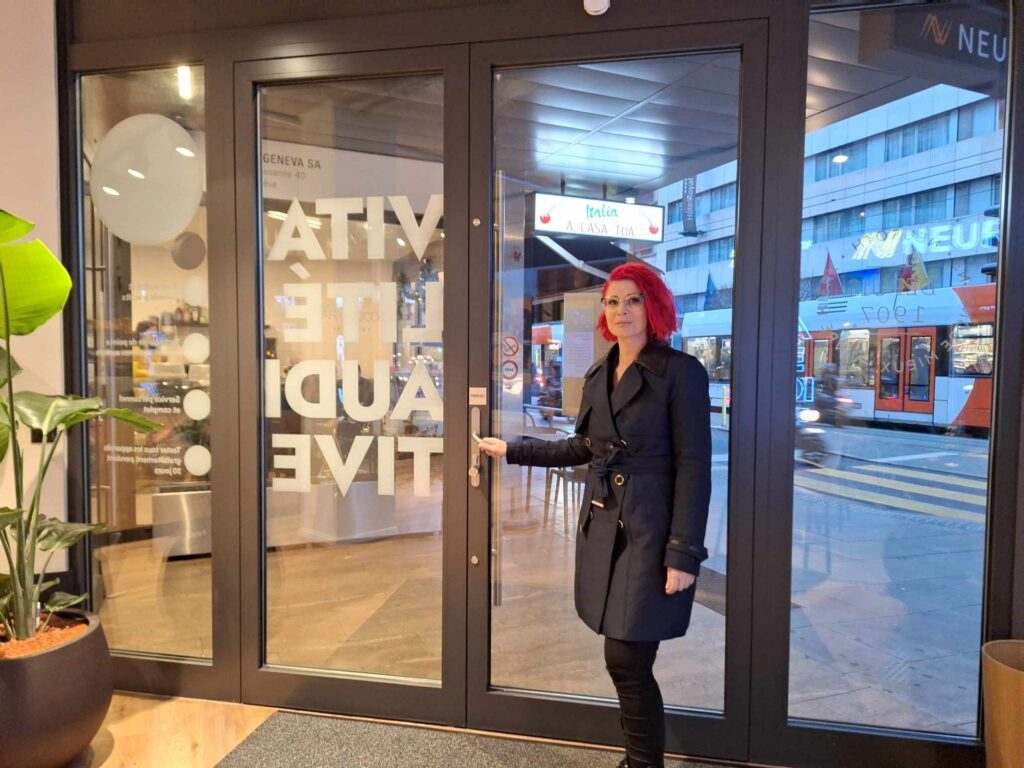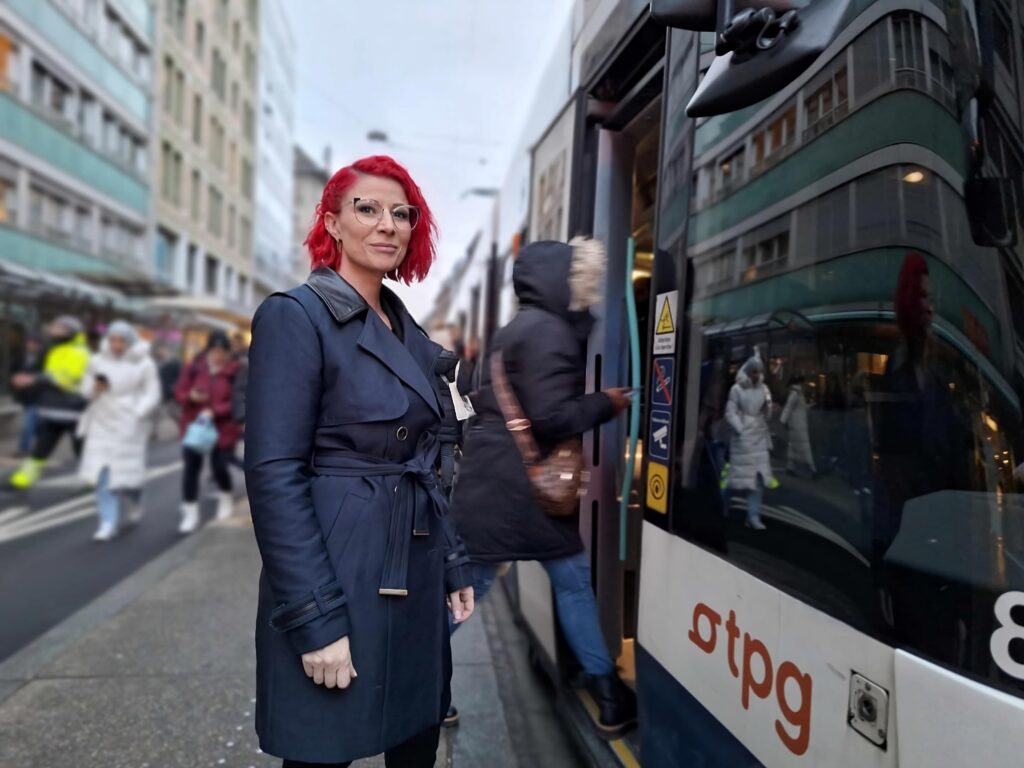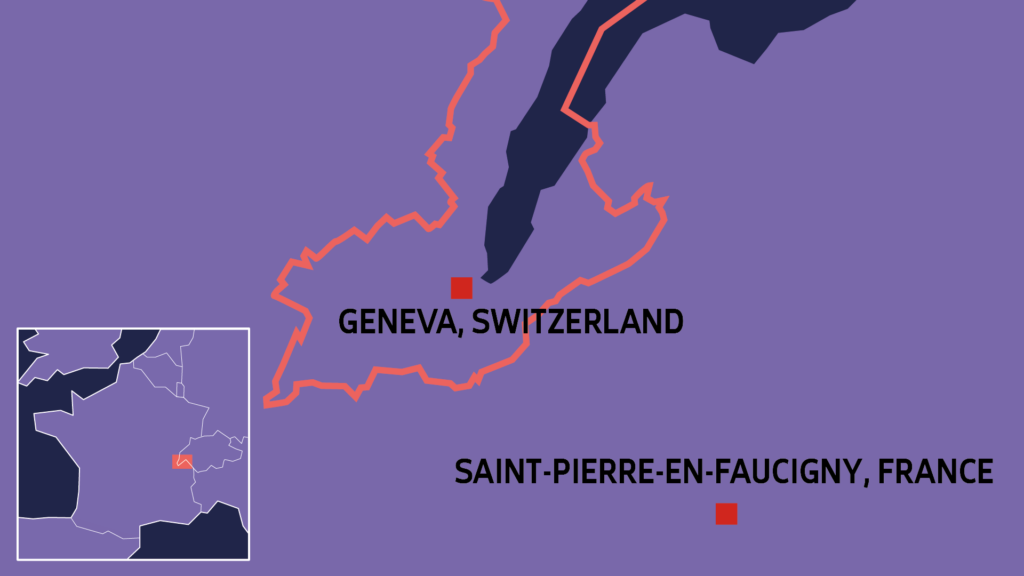Cross-border tensions are a matter of tradition in Geneva, where a unique holiday takes place every year mid-December. Locals dress up for “L’Escalade” and chant historical tunes in a carnivalesque atmosphere. The festivities are an ode to the legendary battle that ended in the city’s victory over the Savoyards — the population that still inhabits the neighboring French region — back in 1602. The day’s atmosphere is light, but its symbolism continues to haunt the 220,000 people who cross the border from France to Switzerland every day for work — a number that has been steadily rising for the past two decades.
Emilie Deseneux, a 41-year-old audiologist, joined the masses of routine commuters in September 2023. Four days a week, she drives 40 minutes from the picturesque mountain town of Saint-Pierre-en-Faucigny to bustling Geneva with her husband, who works at the same company. They leave their car in Champel, a quiet neighborhood with sufficient parking, before catching a bus, then a tram, to their office. “When there are traffic jams, it can take up to two hours to get to work, which can be extremely irritating,” Deseneux says. “Thankfully, that doesn’t happen too often.”
Like many French professionals in the lakeside city’s busy market, the mother of four crosses the border for both financial and logistical gain: “The pay is better. In Annemasse [France], where my previous job was, I was working full-time. In Geneva I work a day less for an additional 1800 euros a month,” she says. “I was also tired of the paperwork that my job entailed in France. For a single pair of hearing aids, an audiologist has up to three hours of administrative tasks. In Switzerland, customers pay and get reimbursed by insurance later on. I can finally dedicate 100% of my time to my clients.”
Speedy hire
For a long time, Geneva was not part of Deseneux’s plan. “The Genevois are a bit wary of foreign employees, who are regarded as job thieves. Less than a year ago, I didn’t have much hope when I decided to look for a position here. I had been told that the market was highly competitive, especially for workers who don’t have a state-issued diploma. I sent my application to about 20 companies. Surprisingly, the process was extremely speedy. I was hired a week after my first interview.”
Cross-border employment continues to make headlines in Geneva’s local news. A new legal adjustment designed to regulate taxation for cross-border workers was recently enforced, following heated political debates during the pandemic.
I can finally dedicate 100% of my time to my clients.
Deseneux’s wages are considered standard in Geneva, given her academic credentials and career experience. “I’m more than satisfied,” she says. “Coming to Geneva has allowed me to have more time for my four children. More importantly, I can pay for my 18- and 20-year-old’s education. In September, one will move to Paris and the other one will go to Lyon. We have to fund their schools, apartments, transportation and food for a few years. We also like to treat ourselves to little things from time to time, like restaurants or family outings. We travel to a beach destination for a week each year. We don’t live a lavish lifestyle, but we are comfortable.”
High living costs and civil unrest
Cross-border situations come with challenges, nonetheless. “We split our payments between two countries,” Deseneux says. “And though we live in France, our rent, food, and car insurance are more expensive than elsewhere in the country, due to the proximity to Geneva. I also have less job security in my current contract, as it is easy to lay off an employee in Switzerland. It’s contrary to France, where an employer has to have a solid motive to let someone go.”
Still, she and her husband are hoping to eventually relocate.
“In two or three years, my husband and I would like to settle in Switzerland,” Deseneux says. “Further down the line, we hope to open up our own hearing aid shop. Switzerland is so much more orderly. All you have to do is look at the streets to realize how much cleaner and better it is.”

Read more
Sign up to keep up to date with ReThink Q.








